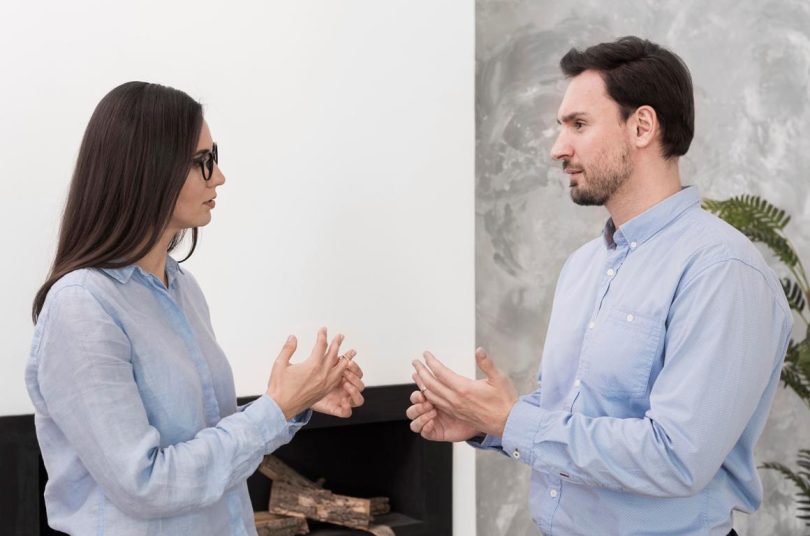Learning how to deal with false accusations in a relationship is essential, as such accusations can be incredibly damaging and stressful. Whether it’s about infidelity, lying, or other issues, handling these accusations calmly and effectively is crucial for maintaining a healthy relationship.
Key Takeaways:
- Stay calm and composed when faced with false accusations.
- Effective communication is essential.
- Seeking professional help can be beneficial.
- Rebuilding trust takes time and effort.
Table of Contents
- Understanding False Accusations in a Relationship
- Initial Response to False Accusations
- Communicating Effectively
- Providing Evidence and Clarification
- Seeking Mediation and Professional Help
- Rebuilding Trust After False Accusations
- Self-Care and Coping Mechanisms
- Frequently Asked Questions
Understanding False Accusations in a Relationship
False accusations can arise from various misunderstandings or insecurities. Knowing the reasons behind these accusations is the first step in addressing them.
Definition of False Accusations
False accusations refer to claims made by one partner against the other without any factual basis. These can be about cheating, lying, or other dishonest behaviors.
Common Reasons Behind False Accusations
- Insecurity and jealousy
- Past relationship trauma
- Miscommunication or misunderstanding
- Personal insecurities projected onto the partner
Psychological Impact on Both Parties
Being falsely accused can cause significant emotional distress, leading to anxiety, depression, and a decrease in self-esteem for both the accused and the accuser. Understanding how to deal with false accusations in a relationship is essential to mitigating these negative effects.

Initial Response to False Accusations
Your initial reaction to false accusations in a relationship can set the tone for future conversations. It’s crucial to remain calm and composed.
Staying Calm and Composed
Reacting with anger or defensiveness can escalate the situation. Take a deep breath and try to remain as calm as possible.
Listening to the Accuser’s Concerns
Understand where your partner is coming from. Listen to their concerns without interrupting or dismissing their feelings.
Importance of Empathy and Understanding
Empathizing with your partner can help in understanding the root cause of the accusation. This approach can also make them feel heard and valued.
Communicating Effectively
Effective communication is key to resolving false accusations in a relationship. It involves careful listening and expressing yourself clearly.
How to Approach the Conversation
Choose a calm and private setting to discuss the accusations. Ensure both parties are in a state of mind where they can talk without interruption.
Using “I” Statements to Express Feelings
Instead of blaming or accusing back, use “I” statements to express your feelings. For example, “I feel hurt when I am falsely accused because I value our trust.”
Asking Open-Ended Questions
Encourage a deeper conversation by asking open-ended questions. This helps in understanding your partner’s perspective better.
Active Listening Techniques
Practice active listening by nodding, maintaining eye contact, and repeating back what your partner says to ensure understanding.

Providing Evidence and Clarification
In some cases, providing evidence can help in clearing misunderstandings and proving your innocence.
Gathering Evidence to Support Your Innocence
Collect any relevant information that can support your side of the story. This could be messages, emails, or any other form of communication.
How to Present Evidence Without Escalating the Situation
Present your evidence calmly and without accusation. Explain your side of the story and how the evidence supports your claims.
Importance of Transparency and Honesty
Being open and honest is crucial. Transparency helps in rebuilding trust and shows that you have nothing to hide.
Seeking Mediation and Professional Help
When false accusations persist, it might be helpful to seek mediation or professional help from a therapist or counselor.
When to Consider Mediation
If conversations between you and your partner are unproductive, mediation can provide a neutral ground for resolving conflicts.
Role of a Relationship Counselor or Therapist
A professional can offer insights and strategies to navigate through false accusations, helping both partners understand and address underlying issues.
Benefits of Professional Intervention
Professional help can facilitate healthier communication, provide coping strategies, and offer a fresh perspective on the relationship.

Rebuilding Trust After False Accusations
Rebuilding trust is a gradual process that requires consistent effort and dedication from both partners.
Steps to Rebuild Trust in the Relationship
To rebuild trust, both partners need to commit to being open, honest, and patient. Apologize for any misunderstandings and work together to move forward.
Importance of Consistent and Honest Communication
Maintain regular communication to address any concerns promptly. Honest conversations help in preventing future misunderstandings.
Activities and Practices to Strengthen the Bond
Engage in activities that both partners enjoy. Spend quality time together and practice forgiveness to strengthen the relationship bond.
Self-Care and Coping Mechanisms
Dealing with false accusations in a relationship can be emotionally draining. Taking care of yourself is essential during this period.
Importance of Self-Care During Stressful Times
Engage in activities that help you relax and rejuvenate. This could include exercise, meditation, hobbies, or spending time with loved ones.
Coping Strategies for Emotional Turmoil
Practice mindfulness, seek support from friends and family, and consider journaling to process your emotions. These strategies can help you manage stress and maintain mental well-being when learning how to deal with false accusations in a relationship.
Seeking Support from Friends and Family
Talk to trusted friends or family members about what you are going through. Their support can provide comfort and perspective.
Frequently Asked Questions
What should I do if my partner falsely accuses me of cheating?
Stay calm and composed. Try to understand their concerns and communicate effectively to clear up any misunderstandings.
How can I prove my innocence without escalating the situation?
Gather relevant evidence calmly and present it without blame. Focus on transparency and honesty in your communication.
Is it possible to rebuild trust after a false accusation?
Yes, with consistent effort, open communication, and patience, it is possible to rebuild trust in the relationship.
When should I seek professional help for false accusations in my relationship?
If false accusations persist and conversations are unproductive, consider seeking mediation or professional help from a therapist.
How can I prevent false accusations in the future?
Maintain regular communication, be transparent, and build a strong foundation of trust in your relationship.








Leave a Comment